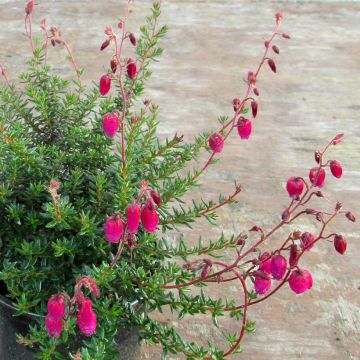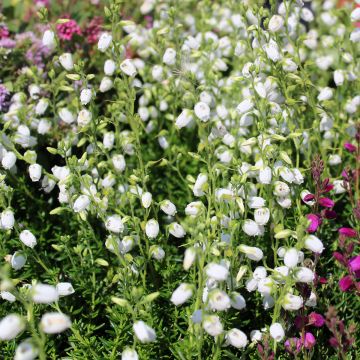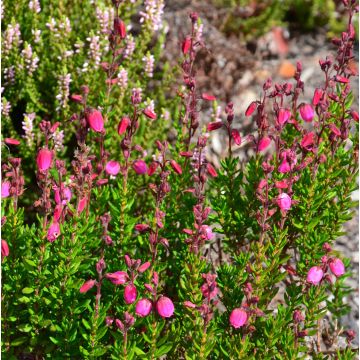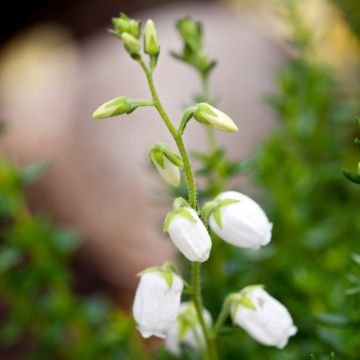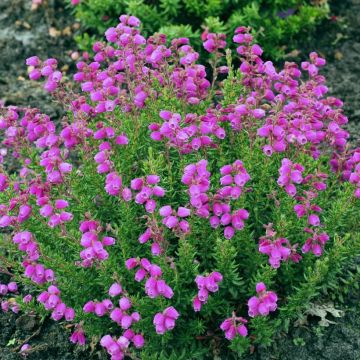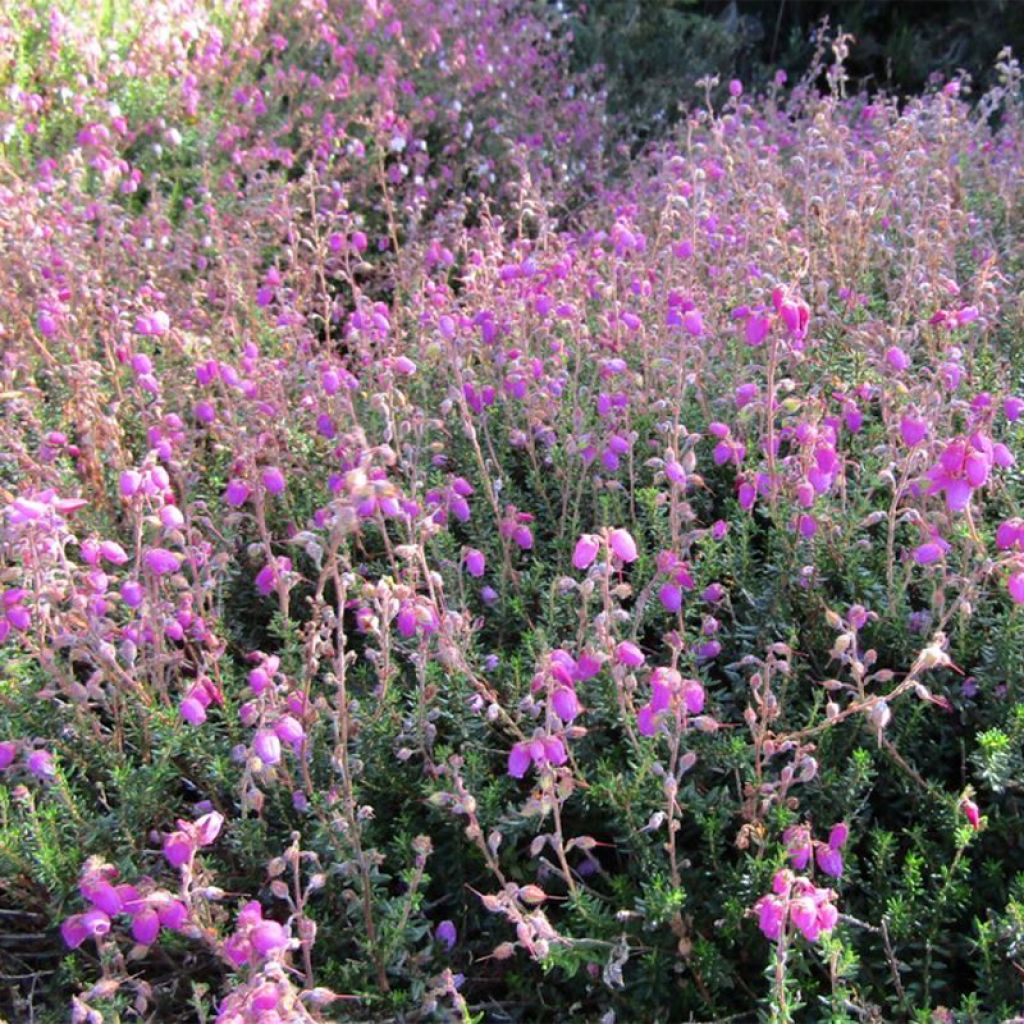

Daboecia scotica William Buchanan - Irish Heath
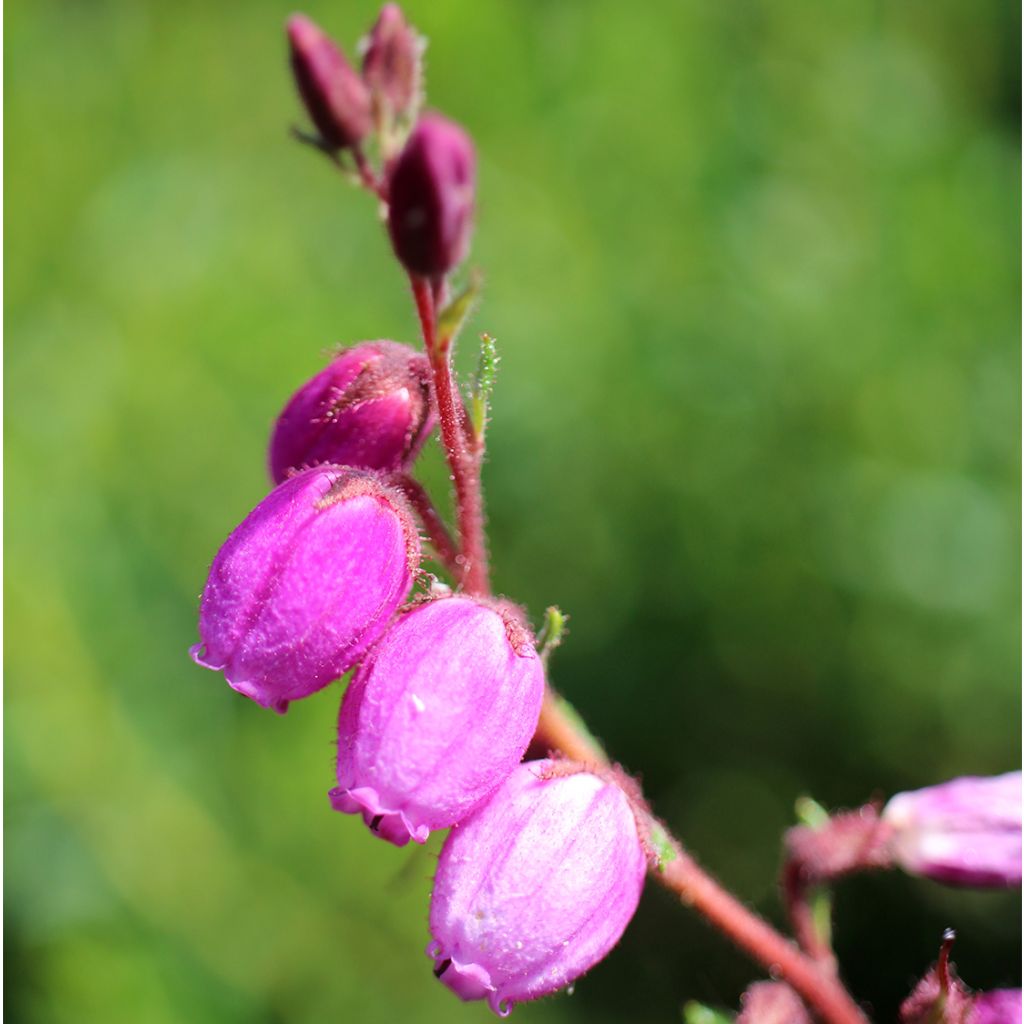

Daboecia scotica William Buchanan - Irish Heath
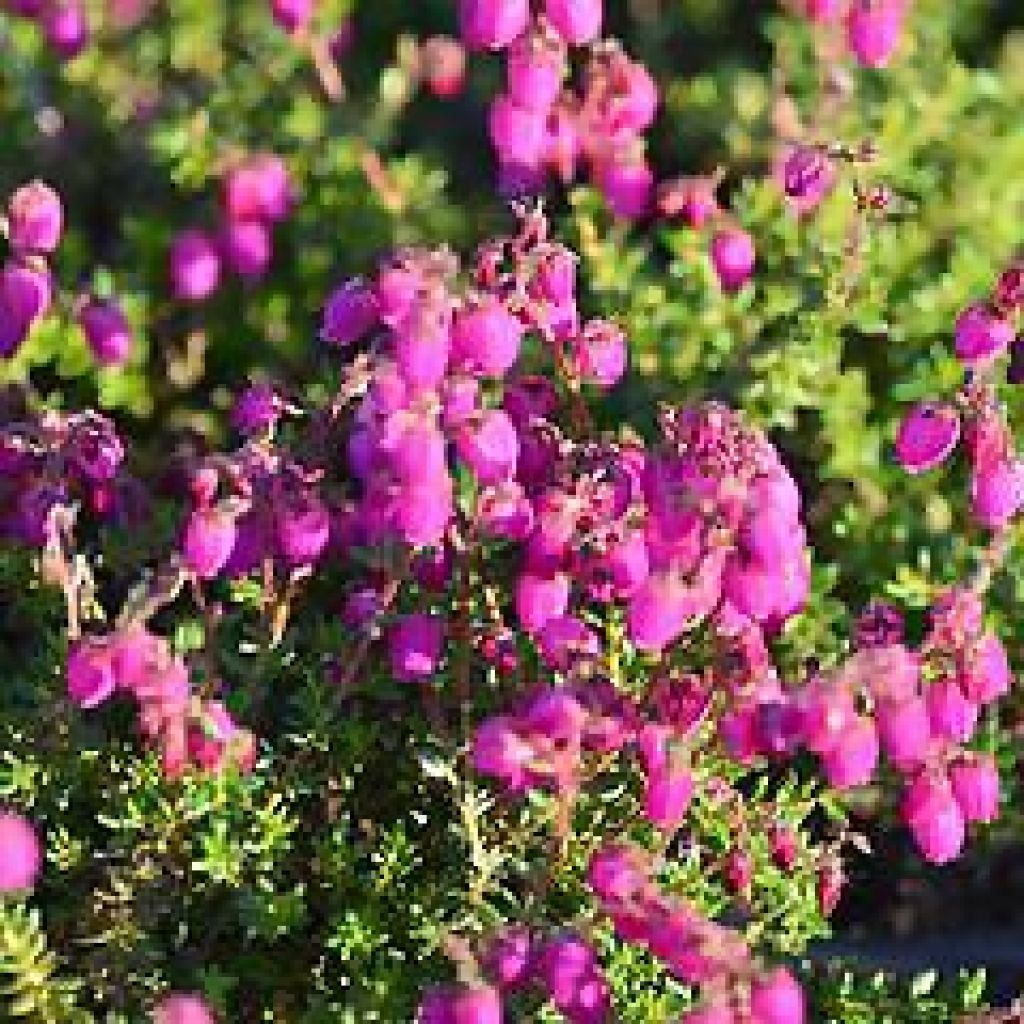

Daboecia scotica William Buchanan - Irish Heath
Daboecia scotica William Buchanan - Irish Heath
Daboecia x scotica William Buchanan
Scottish Heather, St. Dabeoc's Heath
Special offer!
Receive a €20 voucher for any order over €90 (excluding delivery costs, credit notes, and plastic-free options)!
1- Add your favorite plants to your cart.
2- Once you have reached €90, confirm your order (you can even choose the delivery date!).
3- As soon as your order is shipped, you will receive an email containing your voucher code, valid for 3 months (90 days).
Your voucher is unique and can only be used once, for any order with a minimum value of €20, excluding delivery costs.
Can be combined with other current offers, non-divisible and non-refundable.
Home or relay delivery (depending on size and destination)
Schedule delivery date,
and select date in basket
This plant carries a 24 months recovery warranty
More information
We guarantee the quality of our plants for a full growing cycle, and will replace at our expense any plant that fails to recover under normal climatic and planting conditions.
Would this plant suit my garden?
Set up your Plantfit profile →
Description
Daboecia x scotica 'William Buchanan' is a form of St. Daboec heather, also known as Irish heather and Cantabrian Heather. This pretty heather is an evergreen undershrub with a creeping, dense but flexible habit. Its flowering bells, which last from May to October, are its main feature. Its elliptical to oval flowers, ranging from a beautiful purple-pink to red, burst above the foliage. When conditions are favourable, it forms lovely ground-cover for rockeries, borders, and rural hedges in a naturalistic garden.
Daboecia x scotica 'William Buchanan', from the Ericaceae family, is native to Western Europe, specifically Ireland, Spain, Portugal, and the Azores Islands. It grows spontaneously on the edge of woodlands and heathlands, on acidic, sandy, or peaty soils, which are poor but don't dry out. This hardy heather can withstand temperatures of around -15 to -18°C (5 to -0.4°F), or even -20°C (-4°F).
Its habit is spreading, carried by prostrate, hairy, and glandulous branches at the top, which partially straighten up. At maturity, the plant will measure an average height of 30cm (12in) with a relative spread of 50cm (20in). Its small ovate-elliptical leaves, 1cm (0.4 in) long and 4 to 5mm (0.2in) wide, are evergreen, single, leathery, and alternately arranged on the branches. Green and shiny on the upper side, they are fuzzy and curl up on the edges on the reverse side. The long-lasting flowering begins in May and only ends in September-October. Gathered in loose terminal clusters of 3 to 8 units, the flowers are charming pendant bells, measuring 8mm (0.3 in) long and 3 to 4mm (0.1 to 0.2 in) in diameter. Their colour is purple-pink. This nectar-producing flowering attracts and nourishes many pollinating insects.
Hardy, tolerant of very poor and very acidic soils, it is an ideal small bush. It can be planted in an alpine garden but also by the seaside, planted en masse to vegetate a rockery, or a sandy slope where few plants are able to grow. It can be planted with Armeria maritima, Azorella, other heathers such as Calluna, or Asteriscus maritimus. It can also be grown in a pot on a terrace or balcony for its slightly wild appearance and long-lasting pink flowering: choose a large enough container and keep the (exclusively acidic) substrate always moist.
Report an error about the product description
Daboecia scotica William Buchanan - Irish Heath in pictures
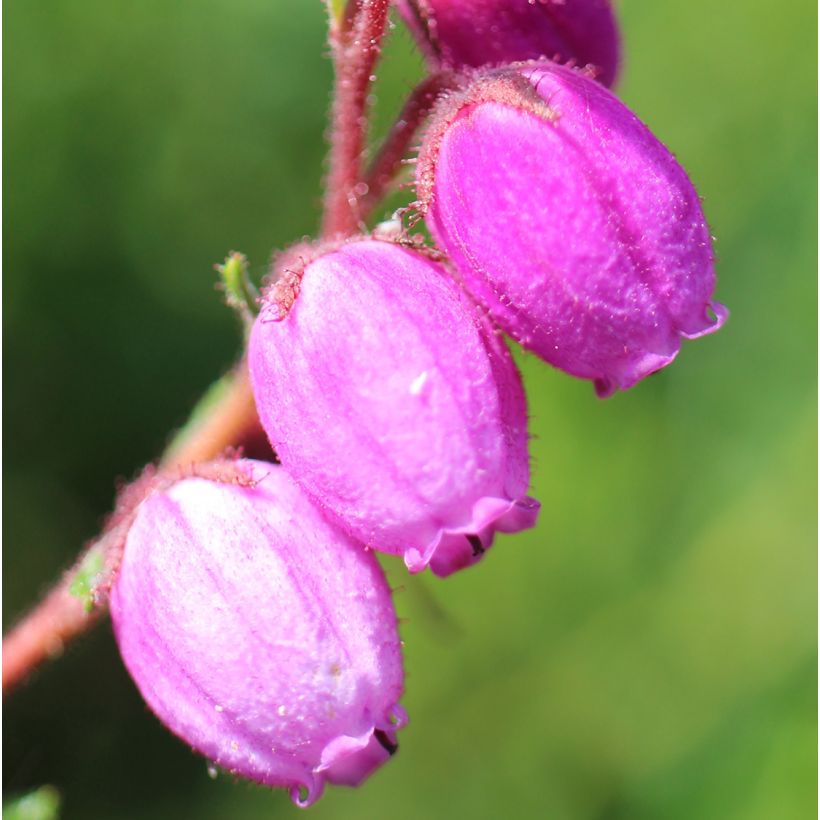

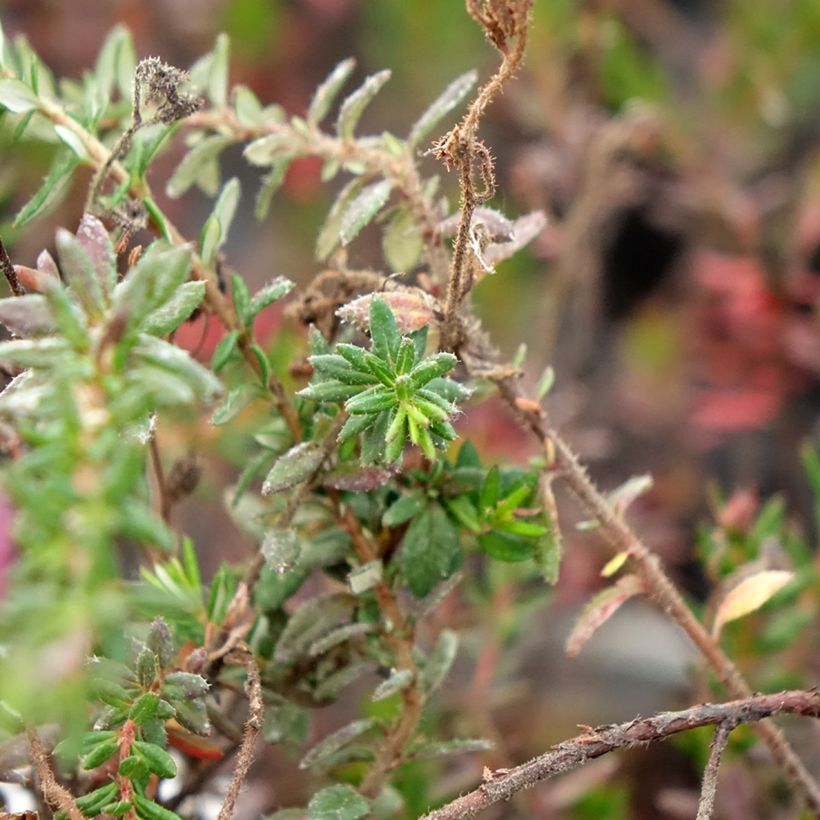

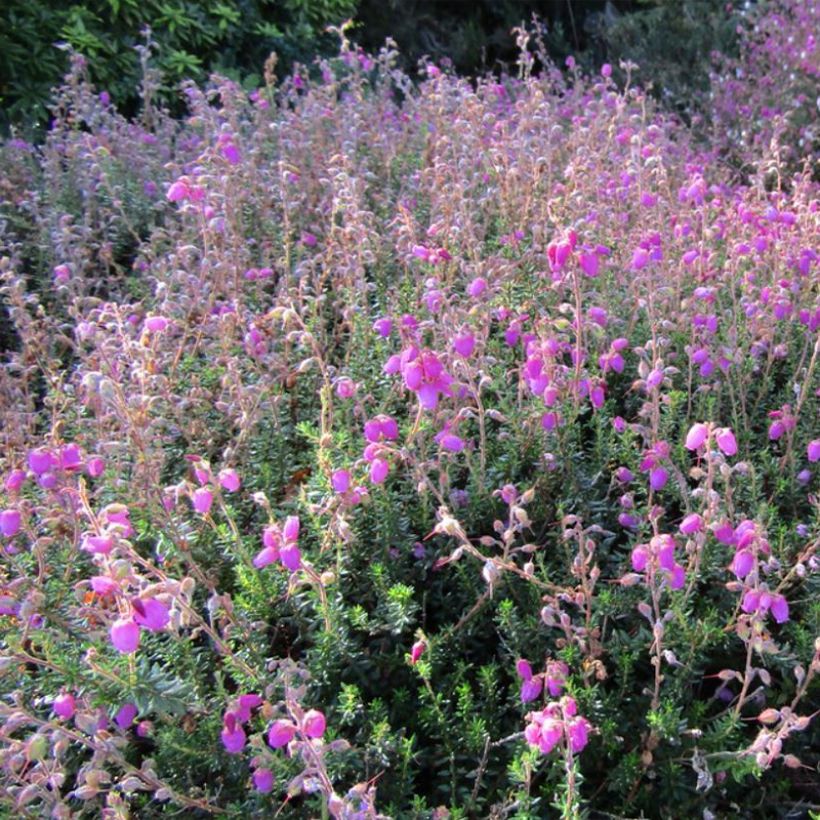

Plant habit
Flowering
Foliage
Botanical data
Daboecia
x scotica
William Buchanan
Ericaceae
Scottish Heather, St. Dabeoc's Heath
Western Europe
Other Daboecia
View all →Planting and care
Daboecia scotica ‘William Buchana’ appreciates full sun and warmth, which enhances its flowering, but cannot tolerate limestone, heavy and clayey soils, or dry soils. It should be planted in acidic (peaty, humiferous, loamy, sandy) soil that is always moist. Never plant in pure ericaceous soil, as it does not retain enough water. Water during the first two years: if the root ball dries out while the root system is still underdeveloped, the plant will die. Apply mulch during planting to prevent the growth of weeds and to maintain soil moisture. In time, the heather will sufficiently cover the ground to prevent weeds.
During planting, it is advisable to loosen the root ball, trim any excessively long roots, and plant in a hole measuring 30x30cm (12x12in), filled with a mixture of compost, ericaceous soil, and coarse sand. Water it once or twice a week (with non-limestone water) depending on the ambient temperature, to keep the soil moist while the plant establishes itself. Prune the heather after flowering to maintain a compact habit and increase its lifespan. Cut the faded branches to 2 to 5cm (1 to 2in) from the previous year's growth, making sure not to cut below the last green leaves. Fertiliser is not necessary; in fact, it is not recommended, in order to avoid promoting foliage production at the expense of flowering (heathers are generally plants that thrive in poor soils).
Planting period
Intended location
Care
This item has not been reviewed yet - be the first to leave a review about it.
Haven't found what you were looking for?
Hardiness is the lowest winter temperature a plant can endure without suffering serious damage or even dying. However, hardiness is affected by location (a sheltered area, such as a patio), protection (winter cover) and soil type (hardiness is improved by well-drained soil).

Photo Sharing Terms & Conditions
In order to encourage gardeners to interact and share their experiences, Promesse de fleurs offers various media enabling content to be uploaded onto its Site - in particular via the ‘Photo sharing’ module.
The User agrees to refrain from:
- Posting any content that is illegal, prejudicial, insulting, racist, inciteful to hatred, revisionist, contrary to public decency, that infringes on privacy or on the privacy rights of third parties, in particular the publicity rights of persons and goods, intellectual property rights, or the right to privacy.
- Submitting content on behalf of a third party;
- Impersonate the identity of a third party and/or publish any personal information about a third party;
In general, the User undertakes to refrain from any unethical behaviour.
All Content (in particular text, comments, files, images, photos, videos, creative works, etc.), which may be subject to property or intellectual property rights, image or other private rights, shall remain the property of the User, subject to the limited rights granted by the terms of the licence granted by Promesse de fleurs as stated below. Users are at liberty to publish or not to publish such Content on the Site, notably via the ‘Photo Sharing’ facility, and accept that this Content shall be made public and freely accessible, notably on the Internet.
Users further acknowledge, undertake to have ,and guarantee that they hold all necessary rights and permissions to publish such material on the Site, in particular with regard to the legislation in force pertaining to any privacy, property, intellectual property, image, or contractual rights, or rights of any other nature. By publishing such Content on the Site, Users acknowledge accepting full liability as publishers of the Content within the meaning of the law, and grant Promesse de fleurs, free of charge, an inclusive, worldwide licence for the said Content for the entire duration of its publication, including all reproduction, representation, up/downloading, displaying, performing, transmission, and storage rights.
Users also grant permission for their name to be linked to the Content and accept that this link may not always be made available.
By engaging in posting material, Users consent to their Content becoming automatically accessible on the Internet, in particular on other sites and/or blogs and/or web pages of the Promesse de fleurs site, including in particular social pages and the Promesse de fleurs catalogue.
Users may secure the removal of entrusted content free of charge by issuing a simple request via our contact form.
The flowering period indicated on our website applies to countries and regions located in USDA zone 8 (France, the United Kingdom, Ireland, the Netherlands, etc.)
It will vary according to where you live:
- In zones 9 to 10 (Italy, Spain, Greece, etc.), flowering will occur about 2 to 4 weeks earlier.
- In zones 6 to 7 (Germany, Poland, Slovenia, and lower mountainous regions), flowering will be delayed by 2 to 3 weeks.
- In zone 5 (Central Europe, Scandinavia), blooming will be delayed by 3 to 5 weeks.
In temperate climates, pruning of spring-flowering shrubs (forsythia, spireas, etc.) should be done just after flowering.
Pruning of summer-flowering shrubs (Indian Lilac, Perovskia, etc.) can be done in winter or spring.
In cold regions as well as with frost-sensitive plants, avoid pruning too early when severe frosts may still occur.
The planting period indicated on our website applies to countries and regions located in USDA zone 8 (France, United Kingdom, Ireland, Netherlands).
It will vary according to where you live:
- In Mediterranean zones (Marseille, Madrid, Milan, etc.), autumn and winter are the best planting periods.
- In continental zones (Strasbourg, Munich, Vienna, etc.), delay planting by 2 to 3 weeks in spring and bring it forward by 2 to 4 weeks in autumn.
- In mountainous regions (the Alps, Pyrenees, Carpathians, etc.), it is best to plant in late spring (May-June) or late summer (August-September).
The harvesting period indicated on our website applies to countries and regions in USDA zone 8 (France, England, Ireland, the Netherlands).
In colder areas (Scandinavia, Poland, Austria...) fruit and vegetable harvests are likely to be delayed by 3-4 weeks.
In warmer areas (Italy, Spain, Greece, etc.), harvesting will probably take place earlier, depending on weather conditions.
The sowing periods indicated on our website apply to countries and regions within USDA Zone 8 (France, UK, Ireland, Netherlands).
In colder areas (Scandinavia, Poland, Austria...), delay any outdoor sowing by 3-4 weeks, or sow under glass.
In warmer climes (Italy, Spain, Greece, etc.), bring outdoor sowing forward by a few weeks.






























